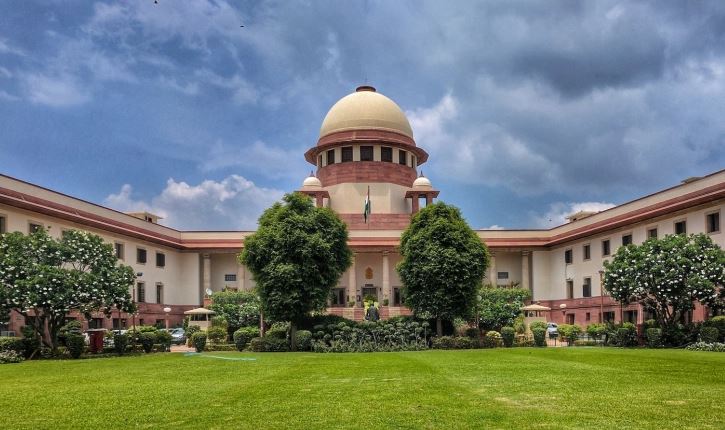
STATE TIMES NEWS
NEW DELHI: During pendency of divorce petition, a wife is entitled to the same amenities of life as she would have been in her matrimonial home, the Supreme Court has said.
A bench of Justices Vikram Nath and P B Varale enhanced the interim maintenance of Rs 1.75 lakh per month to the estranged wife of a Kerala-based cardiologist. The interim maintenance had been reduced by the high court.
The family court awarded Rs 1.75 lakh interim maintenance to the wife while the Madras High Court reduced the amount to Rs 80,000 per month.
“The high court has overlooked certain aspects relating to the income of the respondent (husband) which were looked at by the family court. Further, it is also on record that the appellant is not working as she sacrificed her employment after the marriage.
“The appellant was accustomed to a certain standard of living in her matrimonial home and, therefore, during the pendency of the divorce petition, is also entitled to enjoy the same amenities of life as she would have been entitled to in her matrimonial home,” the bench said. It added that the family court compared the status, standard of life, income source, properties, its possession, rights and liabilities of the husband and found that the wife cannot be denied the privileges as enjoyed by the husband.
“Consequently, we allow the appeal of the appellant wife and set aside the order of the Madras High Court dated December 1, 2022 and restore the order of the family court. The respondent husband is directed to pay a sum of Rs 1,75,000 per month as interim maintenance as per the order of the family court dated June 14, 2022,” it said in its order of Tuesday.
The bench said the documents produced by the husband and evidence of both parties in this regard clearly reflect the fact that he is a renowned expert in cardiology and has a number of “worthful properties” and is the only legal heir to his father who has passed away.
“His mother is running at the age of 93. He is accruing all the incomes from the properties owned by his mother and himself and is also found to have been in possession of a school, though it is stated to be running in losses. However, the respondent did not come forward with any proof to this effect,” the bench noted.
It added that the high court, on the other hand, while allowing the appeal of the husband, modified the order of the family court, noting that the hospital in Kerala had agreed to pay a sum of Rs 1.25 lakh per month as salary to him in 2017.
“We find that the high court has erred in reducing the quantum of maintenance to Rs 80,000 per month. The high court has considered only two sources of income for the respondent.
“Firstly, the sum of Rs 1.25 lakh that he earns from working as a cardiologist at the hospital. Secondly, the rent amount he and his mother receive from a property, of which the high court has stated that he receives half the amount only,” it said.
The bench said the high court has not dealt with the findings of the family court, according to which the husband is said to own a number of worthful properties and the fact that he is the only legal heir of his father.
“The family court found that the respondent is accruing all the incomes from the properties owned by his mother. The high court has not dealt with the aspect of the number of properties owned by the respondent and looked at the rental income from one property,” it noted.
The estranged couple’s marriage was solemnised on September 15, 2008 according to Christian customs. The husband had one son from his previous marriage and there are no issues from the second marriage.
As the relations between the parties got estranged, on March 19, 2019, the husband filed a petition for divorce under the provisions of the Indian Divorce Act, stating that the parties have developed incompatibility.
He alleged cruelty while citing various incidents and prayed for divorce.
During the pendency of the divorce petition, the estranged wife filed an application before the family court in Chennai praying for maintenance of Rs 2.50 lakh per month along with litigation expenses amounting to Rs 2 lakh.

